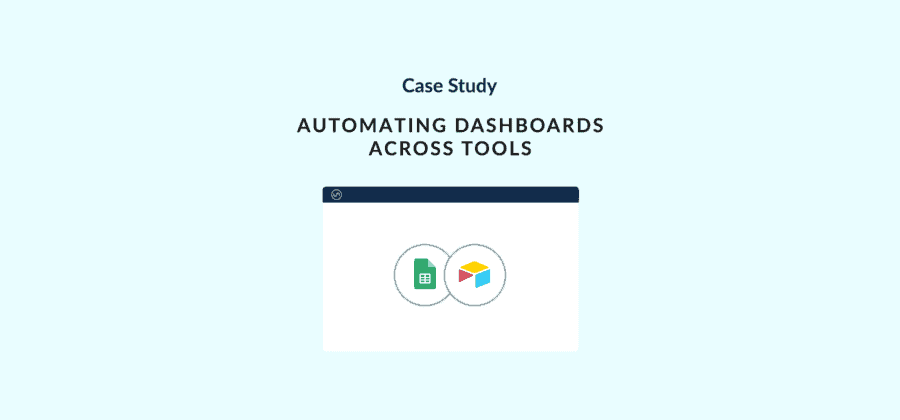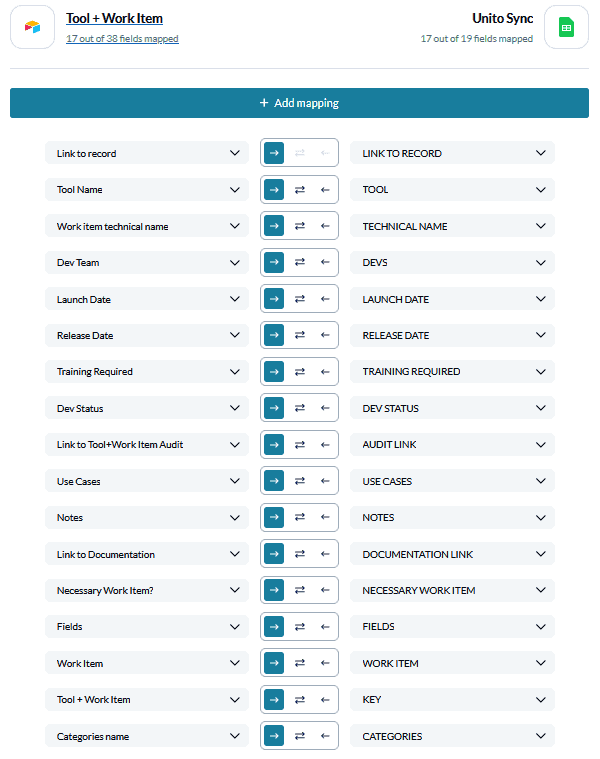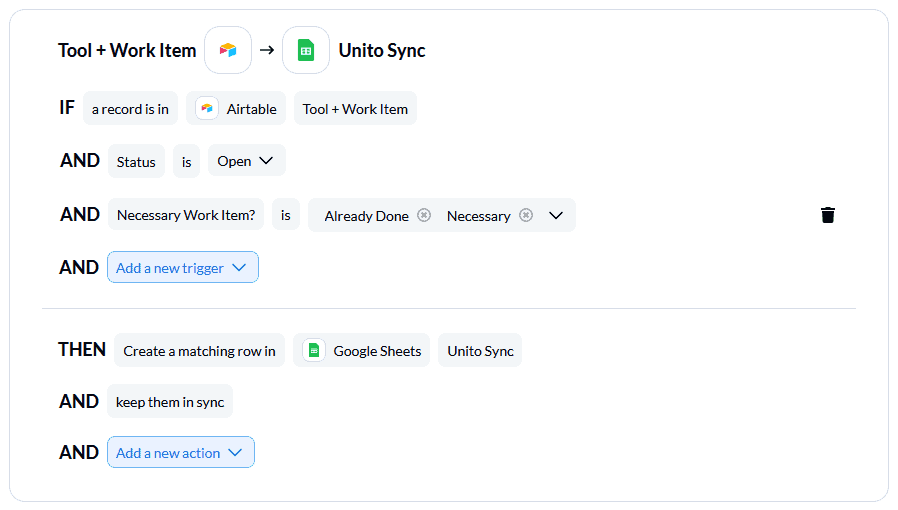Use case:
How Unito’s Data Team Synced up Airtable, Google Sheets, and More Data Tools


"Unito removed manual work in a critical reporting workflow and made Google Sheets the backbone for all my data tools. Product managers still get all the information they need, but faster and with less work."
Want to see what Unito can do for your teams?
Sylvain Boichon is Unito’s Data Team Lead. In this case study, he explains how he uses Unito to send important data from Airtable to Google Sheets so he can build better dashboards for Unito’s product managers.
Unito (the company) suffers from the same problem that Unito (the tool) is trying to solve. Every team uses multiple tools — each for a very specific purpose — that don’t always play nicely together.
There’s no getting around the fact that the tools used by marketers every day won’t get the job done for an engineer and vice versa. When tracking company-wide initiatives, Unito’s data team has to pull information from all these tools to give stakeholders an idea of what’s going on.
A closer examination of Unito’s ETL process
The ETL (Extract, Transform, Load) process is part of that; turning all this disparate information into something everyone can consult. We use multiple data tools such as stichData and Fivetran to do this, because there’s no one tool that can do it all.
As our stack grows, so does the manual work involved. This is especially true with a brand new tool as we learn how to integrate it with the rest of our stack.
Something most of these tools have in common, however, is that they can be natively integrated with Google Sheets. But not everyone at the company uses Google Sheets. Some use Airtable.
In this case study, you’ll see how we use Unito to sync data from Airtable to Google Sheets, so we can then process it with the rest of our data tools.
The Unito data team’s tool stack
Airtable
Multiple teams use this Airtable in a variety of ways, from building collateral calendars, to creating competitive ecosystems, and planning the launch of new integrations. Our product managers use it to do the latter. They prioritize future integrations depending on how big its potential market is, how much work it would be to build, and so on. Then, they add launch dates, provide links to internal documentation, and keep track of development efforts, all through Airtable.
Google Sheets
This flexible spreadsheet tool covers a host of needs for all of Unito’s teams. But for our data team, it’s the backbone of many of our dashboards and reports. We use Looker, a Business Intelligence tool, to provide product managers with the information they need to decide which integrations they should prioritize and which ones need more development work. Google Sheets is a sort of skeleton key in this process; it can collect information from most of our data tools.
But Google Sheets and Asana don’t have this kind of native integration. That’s where Unito really shines.
Before syncing work with Unito
Every time one of our product managers added a new integration to their Airtable base, they had to notify me. Then, I’d go into a specific view of that table, copy the content, and paste it to a spreadsheet where the Airtable columns were replicated. Only then could Fivetran sync that information over to where we store the rest of our data.
That manual work started to multiply quickly as we increased the number of integrations we launched each month.
Another problem with this manual work involves the tables themselves. Any time a coworker made any changes to the columns, it added more work to everyone’s plates. I had to check and make sure everything was in the right place before I could start copying data over.
How things changed for the data team after connecting to Unito
Put simply, there’s no more manual work required. It took just a few minutes to set up a flow between the Airtable base used by our product managers and Google Sheets. Now, any changes made in one are automatically synced to the other, meaning our business intelligence tools are always up to date.
Product managers can trust that the information at their fingertips is recent, while I focus more of my attention on other projects, while our colleagues can make the changes in their tools without worrying about how they’ll affect other workflows.
Here’s a closer peek at Unito’s data team workflow
Here’s what our field mappings look like. One of the great things about pairing Airtable and Google Sheets is they’re both among the most flexible tools we integrate.

We also built a simple rule to filter integrations we haven’t already worked on or that we don’t consider as necessary as others.

If you’re looking for a more detailed guide, you can follow our step-by-step walkthrough to sync Airtable records with Google Sheets.




